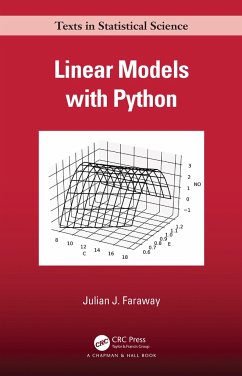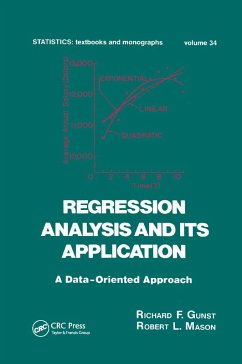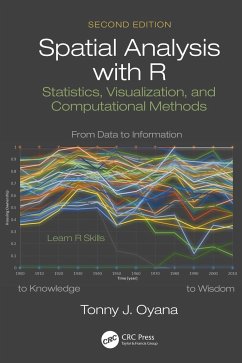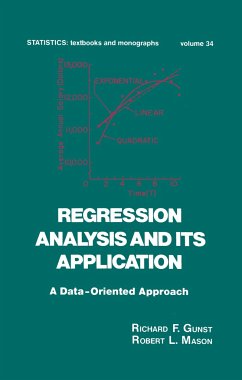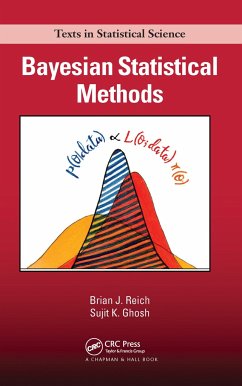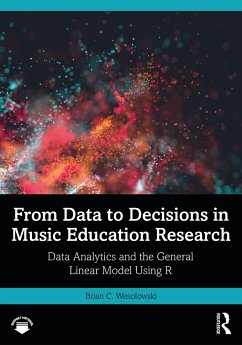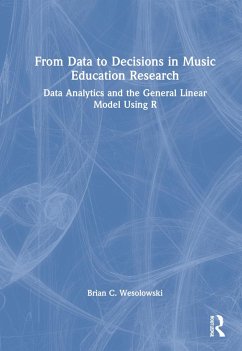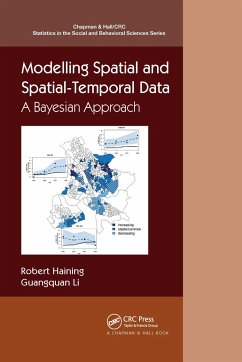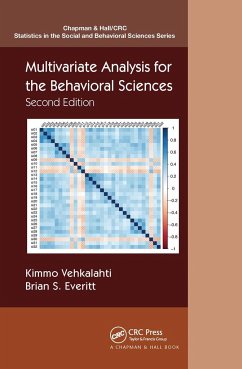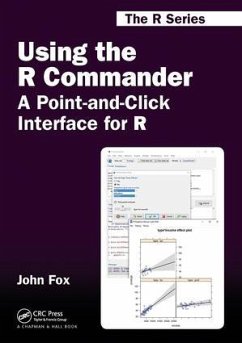
Spatial Data Analysis in Ecology and Agriculture Using R
Versandkostenfrei!
Versandfertig in 6-10 Tagen
45,99 €
inkl. MwSt.
Weitere Ausgaben:

PAYBACK Punkte
23 °P sammeln!
Key features:Unique in its combination of serving as an introduction to spatial statistics and to modeling agricultural and ecological data using RProvides exercises in each chapter to facilitate the book's use as a course textbook or for self-studyAdds new material on generalized additive models, point pattern analysis, and new methods of Bayesian analysis of spatial data.Includes a completely revised chapter on the analysis of spatiotemporal data featuring recently introduced software and methodsUpdates its coverage of R software including newly introduced packagesSpatial Data Analysis in Ec...
Key features:
Unique in its combination of serving as an introduction to spatial statistics and to modeling agricultural and ecological data using R
Provides exercises in each chapter to facilitate the book's use as a course textbook or for self-study
Adds new material on generalized additive models, point pattern analysis, and new methods of Bayesian analysis of spatial data.
Includes a completely revised chapter on the analysis of spatiotemporal data featuring recently introduced software and methods
Updates its coverage of R software including newly introduced packages
Spatial Data Analysis in Ecology and Agriculture Using R, 2nd Edition provides practical instruction on the use of the R programming language to analyze spatial data arising from research in ecology, agriculture, and environmental science. Readers have praised the book's practical coverage of spatial statistics, real-world examples, and user-friendly approach in presenting and explaining R code, aspects maintained in this update. Using data sets from cultivated and uncultivated ecosystems, the book guides the reader through the analysis of each data set, including setting research objectives, designing the sampling plan, data quality control, exploratory and confirmatory data analysis, and drawing scientific conclusions.
Additional material to accompany the book, on both analyzing satellite data and on multivariate analysis, can be accessed at https://www.plantsciences.ucdavis.edu/plant/additionaltopics.htm.
Unique in its combination of serving as an introduction to spatial statistics and to modeling agricultural and ecological data using R
Provides exercises in each chapter to facilitate the book's use as a course textbook or for self-study
Adds new material on generalized additive models, point pattern analysis, and new methods of Bayesian analysis of spatial data.
Includes a completely revised chapter on the analysis of spatiotemporal data featuring recently introduced software and methods
Updates its coverage of R software including newly introduced packages
Spatial Data Analysis in Ecology and Agriculture Using R, 2nd Edition provides practical instruction on the use of the R programming language to analyze spatial data arising from research in ecology, agriculture, and environmental science. Readers have praised the book's practical coverage of spatial statistics, real-world examples, and user-friendly approach in presenting and explaining R code, aspects maintained in this update. Using data sets from cultivated and uncultivated ecosystems, the book guides the reader through the analysis of each data set, including setting research objectives, designing the sampling plan, data quality control, exploratory and confirmatory data analysis, and drawing scientific conclusions.
Additional material to accompany the book, on both analyzing satellite data and on multivariate analysis, can be accessed at https://www.plantsciences.ucdavis.edu/plant/additionaltopics.htm.





